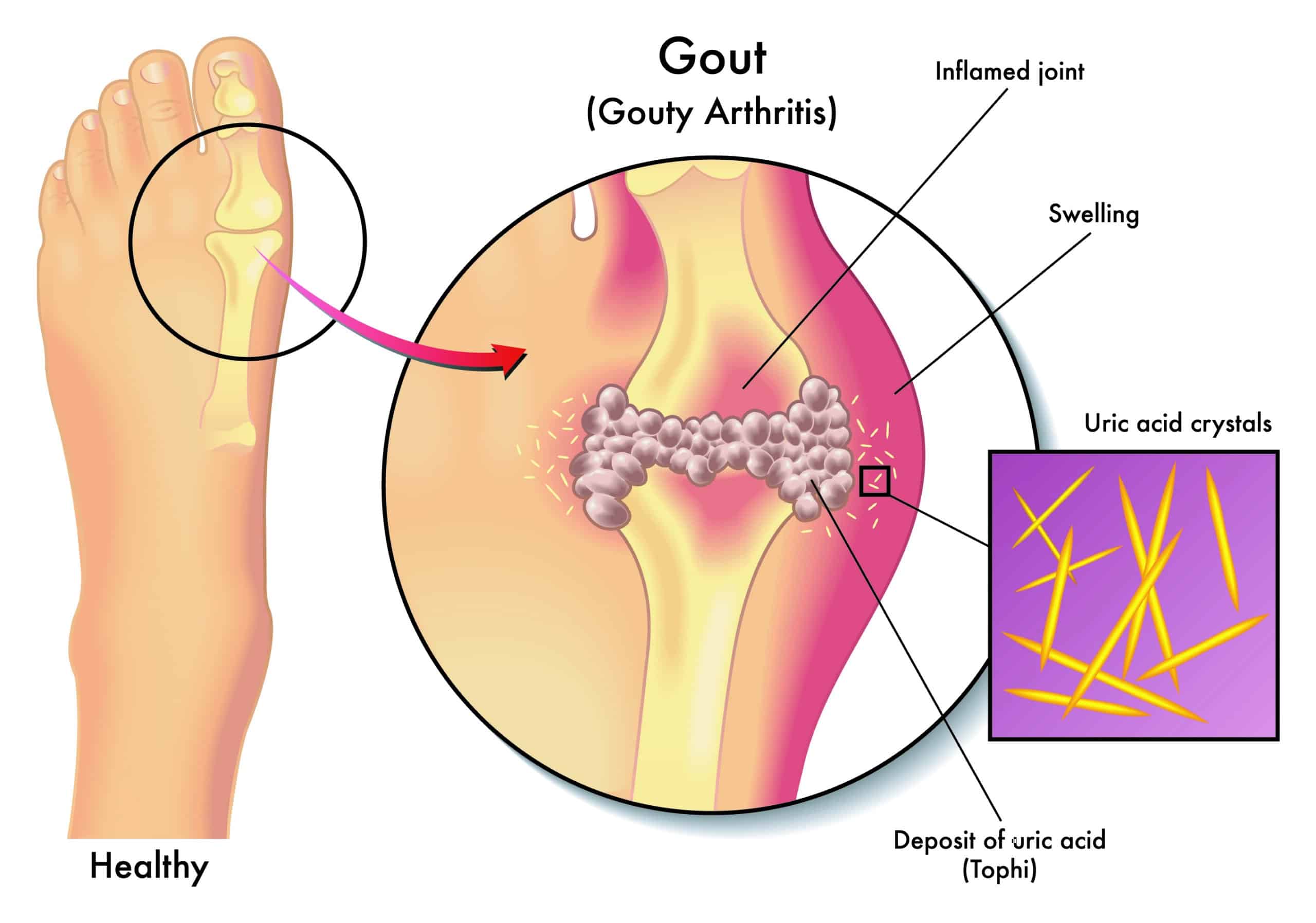Pain in your joints
The most common symptom among gout sufferers is pain in the big toe joint, but it can occur in other joints as well. It typically feels like an intense, severe pain, with some describing it as feeling similar to having a broken bone. Gout is caused by a buildup of uric acid around a joint, forming small crystals which is what causes this feeling.
Swelling, redness or burning in your joints
Pain in your joints is often accompanied by swelling, as your body tries to protect it and heal. The skin around the affected joint may also appear red, and shiny and you will usually feel a burning sensation. It can vary depending on the attack and how long it has been bothering you, but if you experienced these symptoms at any point, we would recommend seeking professional medical help.
Fatigue or fever
The previous two symptoms are the main indicators of gout, but you may also experience fatigue or a fever. You could have fatigue if you’re feeling extremely tired or weak, more so than is normal for you. A fever is an abnormally high body temperature – it’s best to test this with a thermometer to be sure, but usually you would feel warm to the touch.
Suffering from fatigue or a fever are less common symptoms and aren’t indicative of gout on their own, but you should mention it to your doctor if they’re accompanied by either of the other common symptoms.
Be aware of the signs
If you think you may be suffering from gout, we would recommend getting professional medical advice as soon as possible. There are also some home remedies to help you manage your condition, but these will only provide short-term relief, and shouldn’t prevent you from gaining an expert opinion. It can come in waves and you may start to feel better on your own, but it’s important to speak to a doctor to find out if there’s an underlying cause.
It’s easy to search the internet and fall into a rabbit hole of different health issues you may think you have. You can find lots of helpful and in-depth information, but it often makes you think about the worst-case scenario, which most likely isn’t what is happening to you. It can make you feel anxious and panicked, which is harmful to both your physical and mental health. The best thing you can do is go to your doctor and let them assess you to find out what’s wrong. They will be able to give you advice on how to manage any pain and hopefully put your mind at ease.




